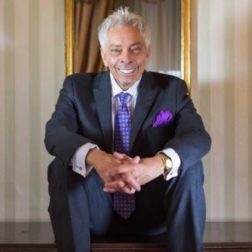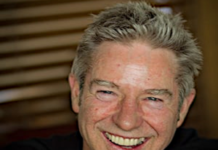
(By Mike McVay) Save this article. Make a digital copy of it. Print it. Keep it handy for the next time the world locks down.
Many of us have now lived through earthquakes, forest fires, tornadoes, hurricanes, floods, blizzards, scorching dry spells and terrorist attacks. Add to that the latest … a Global Pandemic. We hope that what happened in March 2020 never happens again. We’re not out of the woods yet, so it could. If it does, one would hope that those of us who lived through it last time are better prepared for it the next time and that we’ve learned from our experience.
The biggest heroes, in regard to being able to stay on the air during a lockdown, came from the Engineering and Technical departments. Within days they put air-talent into their homes to broadcast their shows and to produce/voice commercials. They enabled Program Directors/Music Directors to be able to schedule music from remote locations. Traffic departments were set-up to work remotely. Promotions were able to deliver prizes to listeners before businesses were closed down.
We learned some very important things during the initial months of the pandemic. Radio is significantly dependent on in-auto commuters. Moving Dayparts to fit new listening habits, for the most part, was not beneficial and didn’t show rating growth. If we have a lockdown again, be aware that listeners want to listen to radio audio when they want and where they want.
Listeners depended on radio for information on where to find food, how to supplement their income by applying for PPP Loans and unemployment, where to be tested for Coronavirus and later in time how to … and where to … get vaccinated. It became important to provide survival information to those who continued to work outside of their home and to cater to those working from home.
Making your audience a community was beneficial. Being info-centric helped satisfy the needs of those who depend on radio for information. Share with your listeners how to help those in need, by providing for the homeless, saluting healthcare workers and frontline heroes, pointing your audience to foodbanks, and things as simple as where to get masks. Be encouraging to your audience. Interview on-air healthcare specialists, psychologists who can provide information and suggestions on coping, and do what radio has always been meant to do … serve your community.
We saw meteoric spikes of listeners using their smart speakers to listen to the radio, discover DSPs, and explore the world of podcasting for targeted content that they could listen to on-demand. This alone should’ve been reason enough for all stations to simulcast their over-the-air stream on all of their digital platforms and TLR to Nielsen. That suggestion is because of the change that occurred in regard to Listening Locations. That also underscores why radio should promote all of the different ways that someone can listen to your programming. On-Air, On-Line, On Smart Speakers and On-Demand.
The next time we’re faced with a similar crisis, create and encourage distractions. Share what video shows are trending that are ripe for binging. Develop and present unique listening experiences in the way of programs that air at night and on the weekend. Some stations played Christmas music at night, even in July. Harken back to the past to create new thing for the future. That could be playing full album sides, airing mystery theatre and old classic radio shows at night. You don’t have to be a spoken word station to air spoken word entertainment outside of primetime. Why not create Zoom symphonies with members of the audience who play instruments? The bottom-line; make your station a destination for the audience. A reason to search out the station.
One more thing that we learned from this crisis … don’t make major programming changes during a Pandemic … and if you do … be prepared to reintroduce those changes when the world reopens. If you make changes when the audience is away, they’ll be confused when they return to listen to your content. You may find that the audience you turned away from was bigger than the audience you hope to attract during a topsy turvy time period.
Mike McVay is President of McVay Media and can be reached at [email protected]






Thank YOU
Mike, You are right on time! and right on point! I love reading your articles, they are The Facts! and The Truth about Radio,Keep up the great work my brother